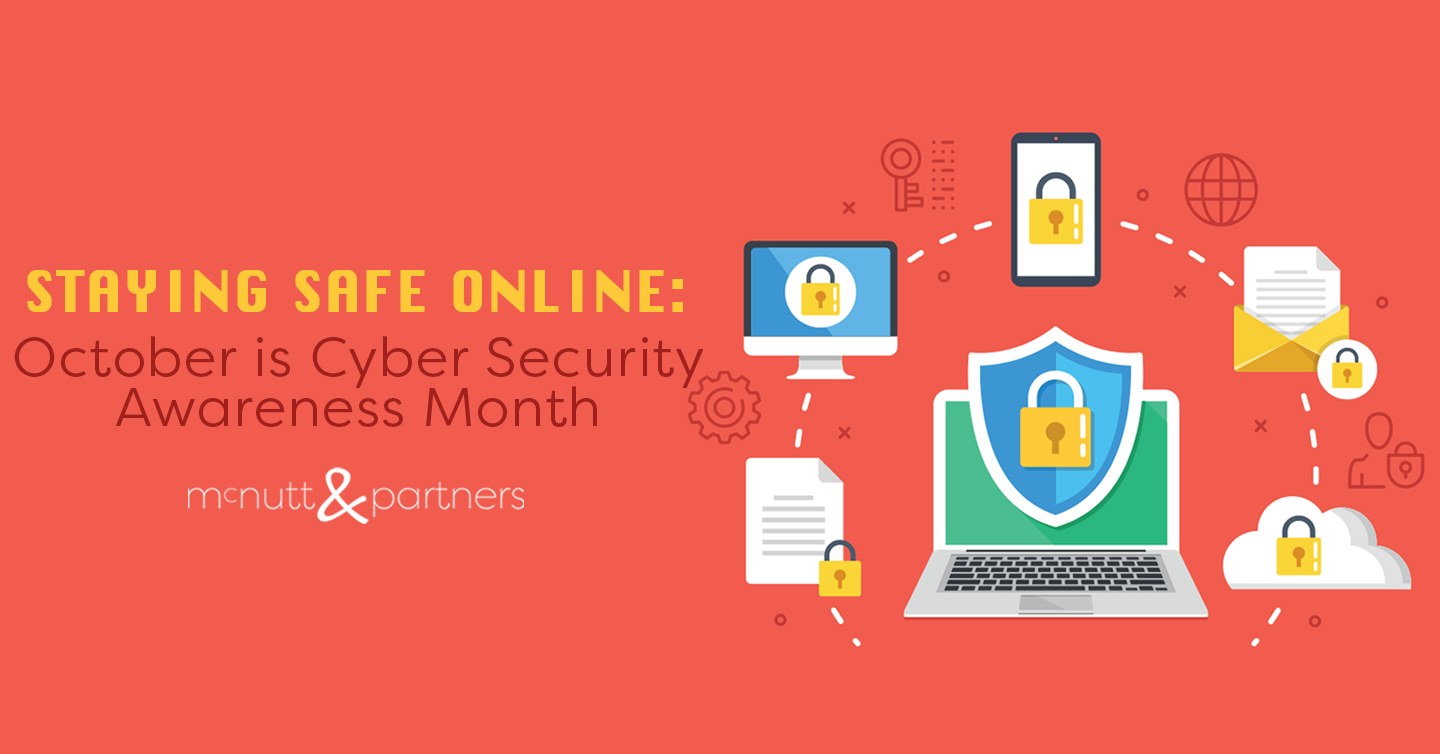We arm our homes with alarms. We lock our cars. We shred important documents. We take measures to protect our personal data online (or we should). Staying safe online goes beyond just using common sense and having general mindfulness of situations that “just don’t feel right,” (though those things are imperative too). With the importance of protecting ourselves from scammers, hackers and other threats at an all-time high, cyber security awareness is up there with all other matters of personal protection.
October is Cyber Security Awareness Month, a time for a few quick reminders as to what it means to protect your personal assets online.
What is cyber security?
We’ve said it before, and we’ll say it again. The internet is a vast place—both full of promising possibilities—and potential problems. Bad people are out there who want to steal your identity, scam your money and, in any way they can, take advantage of the information that you put out into the world digitally.
Cyber security, or computer security, is the practice of protecting individual and business, data, systems and networks from digital attacks or unauthorized access. Protection strategies range from using technology specifically designed for cyber security to simply implementing “best practices” when navigating the internet.
You likely see instances of scammers at work every day—whether you realize it or not. Pop-ups, viruses, bogus emails—they’re all examples of threats to cyber security.
Quick tips for staying safe online
Cyber security can be complex, but a few quick tips for enhancing online protection in your everyday life can make all the difference. Here are a few to follow:
Create secure passwords
With so many accounts to keep up with, it can be tempting to use the same password over and over again. Doing so, however, leaves you extremely vulnerable. Create complex passwords, use a password manager and change your password any time you suspect your information has been compromised.
Be wary of scam emails.
There are some telltale signs for spotting a scam email. Learn the signs and watch out for them in the event that something fishy comes through your inbox.
Keep your computer up to date.
Those little reminders can be annoying, but don’t ignore them! If your computer prompts you to update your anti-virus, operating system or any of its software, do it. This keeps your computer current with the most recent protections available.
Take advantage of privacy settings on social media.
If you don’t want to broadcast to the entire world on social media, you don’t have to! Certain information may be best left to friends and family. Most social media platforms have built-in features that help you regulate who exactly can see your content.
Only click trustworthy links.
Sketchy links can lead to viruses. Be wary of unfamiliar websites, or those that try to mimic other trustworthy sites (a familiar URL with a .net instead of a .com, for example).
Do not share personal information electronically.
Never send usernames, passwords, bank account numbers, credit card info or any other sensitive information via email or electronic chat.
Summary
As we increasingly live more and more of our lives online, cyber security should be top of mind rather than an afterthought. Staying safe online via cyber security awareness protects you and your loved ones from harm while allowing you to still take advantage of all of the ways that technology makes our lives easier.
McNutt & Partners is a full-service advertising and digital marketing agency. Contact us today for your marketing needs! Call 334-521-1010, or visit our contact page.

